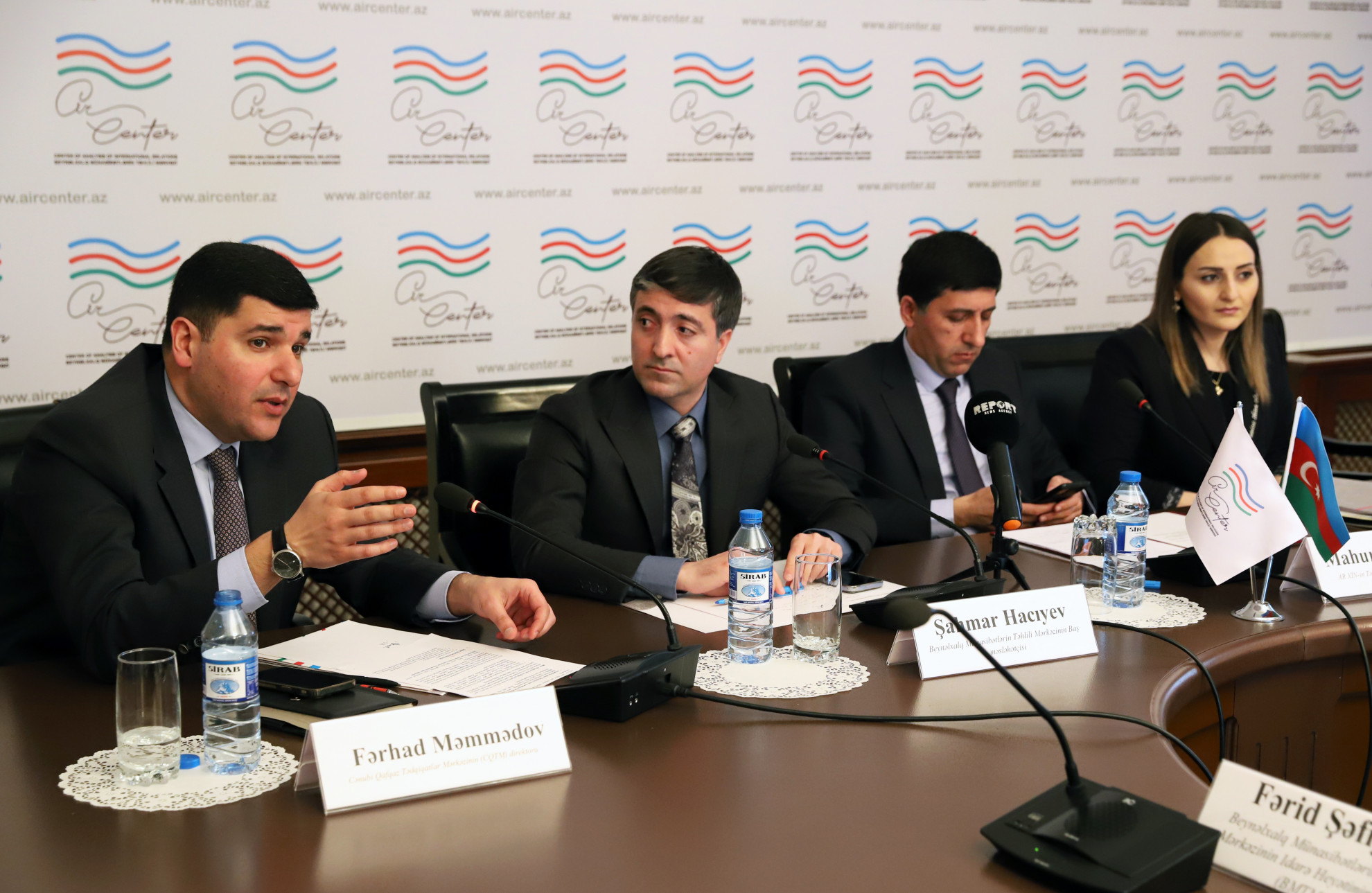The Center of Analysis of International Relations (AIR Center) hosted discussions on “Azerbaijan and BRICS: Opportunities and Prospects.”
The discussions, moderated by AIR Center senior advisor Shahmar Hajiyev, mainly focused on Azerbaijan and BRICS relations, prospects for economic cooperation, and the group’s position against the backdrop of processes taking place in the South Caucasus.
Shahmar Hajiyev noted that the emerging new world order forces many states to align their foreign policies with this reality. Stressing the importance of BRICS, he said that Russia and Iran’s (two neighboring countries) membership in the group enhances its appeal.
“According to the International Monetary Fund’s 2024 figures, approximately 45 percent of the world’s population is concentrated in the member countries of this group. This group accounts for 28.7 percent of global GDP and about 20 percent of international trade. Also, the financial resources of the BRICS countries exceed 25 trillion.”
Touching upon BRICS’s place in Azerbaijan’s foreign policy, Mahur Gasimov, the head of the Department of Analysis and Strategic Research at the Ministry of Foreign Affairs of Azerbaijan, spoke about BRICS’s unique role in the system of international relations and its huge potential. According to him, the issues of multilateralism and inclusiveness, which guide BRICS activities, coincide with the principles of Azerbaijan's foreign policy. Speaking about the three main areas of BRICS cooperation —politics and security; finance and economy; and cultural and international relations—M. Gasimov noted that Azerbaijan is closely following the activities of this platform:
“Azerbaijan has made important contributions to global peace and security during its non-permanent membership in the UN Security Council in 2012–2013 and its chairmanship of the Non-Aligned Movement in 2019–2023. Azerbaijan has made important contributions to the implementation of communication projects such as the East-West and North-South transport corridors, as well as ensuring energy security, intercultural dialogue, and combating climate change. Our activities are highly appreciated by the international community.”
Speaking on “BRICS and Azerbaijan: New Opportunities and Prospects," Farhad Mammadov, director of the Center for Studies of the South Caucasus, said that BRICS is a platform established against the unipolar world order formed by the West. According to him, steps are being taken towards the institutionalization of the platform, which currently operates in a consultative format. Stressing the increased interest in BRICS, F. Mammadov said that this trend has already caused reactions in the West:
“The number of countries that want to join BRICS is increasing. Two of them are Kazakhstan and Pakistan, the friendly countries to us. Indeed, BRICS is not a problem-free format. There are some frictions between China and India, and new problems may emerge with the accession of Pakistan. However, we should still be interested in this issue because the countries that we have friendly and good neighborly relations with have seats within this format."
F. Mammadov noted that Azerbaijan's regional leadership role and the fact that Azerbaijan develops its ties with the West on an equal footing, are suitable parameters for BRICS.
Later, head of the Baku Political Scientists' Club, Zaur Mammadov, delivered a speech on “BRICS and Azerbaijan: Economic cooperation and priorities.” He said that although BRICS was established against the unipolar world system, it is not an organization and does not contain any political or military components. Therefore, Azerbaijan's intensive cooperation with the BRICS does not involve any threats.
“BRICS is a platform covering mostly communication, economy, and financial issues.”
Z. Mammadov pointed out that the exhibition “Made in BRICS and SCO,” to be held in the Baku EXPO Center in April 2024, will contribute to the development of Azerbaijan’s relations with this platform.
Speaking on the topic “BRICS and the processes taking place in the South Caucasus,” Aytan Gurbanova, a teacher of the Department of International Relations at Baku State University, noted that the position of some BRICS members regarding the processes in the South Caucasus is ambiguous. Nevertheless, forming relations with this group, which has reached the borders of the South Caucasus, should be one of the important directions.
Discussions were followed by a question-and-answer session.






























